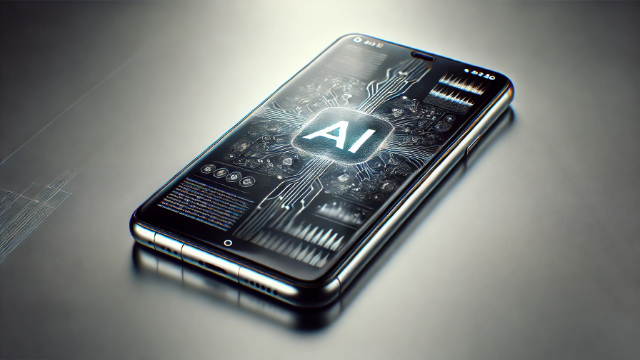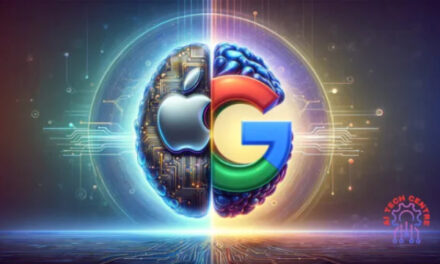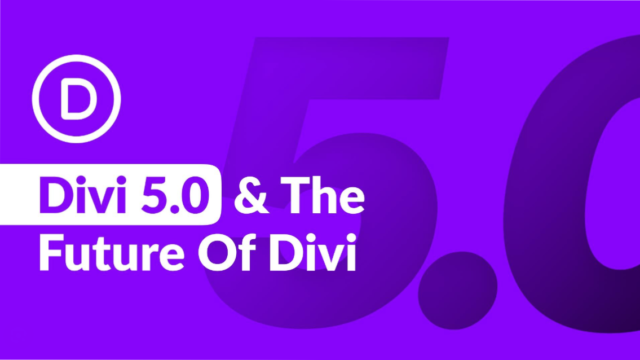Okay, imagine you’re at your best friend’s wedding, and instead of everyone cheering or shedding a tear during the vows, they’re all staring at their phones, scrolling through an AI-generated slideshow of your friend’s past relationships. A bit creepy, right? Well, that’s not too far off the world Will Dunn is warning us about in his article, “Do Not Buy an AI Smartphone“ in The New Statesman. This isn’t just sci-fi paranoia; it’s a genuine concern about how AI is steadily creeping into our most personal moments and experiences.
Here at AI Tech Centre, we take pride in rigorously analyzing articles like these. After all, technology’s true purpose is to simplify our lives, not add unnecessary complexities, wouldn’t you agree? Yet, when your smartphone begins to empathize more than you do, it starts to feel like an episode of Black Mirror—creepy, right? Now, let’s examine Dunn’s claims and consider ways to prevent AI from turning us into sentimental zombies.
The Big Problem with AI-Powered Smartphones
1. AI is Stealing Our Emotional Thunder
Have you ever had a friend who’s always one-upping you? Like, you tell them you got a raise, and suddenly, they’re talking about their promotion to CEO of their own startup? Well, that’s pretty much what AI is doing to our emotions. Dunn kicks off with this bizarre example of an Apple advertisement showing an iPhone slideshow at a fish funeral – yes, a fish funeral. As if that’s not enough to make you raise an eyebrow, it drives home the point that AI is starting to hijack even the most mundane, human experiences. What’s next? AI-generated sympathy cards at your hamster’s birthday party?
Now, I know what you’re thinking: “But isn’t it helpful to have a phone that understands me?” Sure, it sounds convenient. But here’s the kicker – when we let AI take over, we’re essentially outsourcing our emotions. The risk is that our ability to genuinely connect with others, feel deeply, and process emotions could start to atrophy, like a muscle that’s never used.
Solution: Reclaiming Our Emotional Turf
Let’s not lose our humanity over a smartphone feature, okay? If you’re tempted to let your phone handle the heavy emotional lifting, try this instead – pick up the phone (the old-fashioned way) and call someone. Or better yet, show up in person. It sounds simple, but it’s the little things that make us, well, human. Besides, if we don’t practice experiencing emotions ourselves, we might end up as lifeless as that AI slideshow at the goldfish funeral. And nobody wants to be that guy.
2. The Rise of “Griefbots” – Or How AI Plans to Crash Your Mourning Party
Picture this: You’re having a rough day, and you start missing a loved one who passed away. Before you know it, your AI smartphone suggests, “Hey, wanna chat with a griefbot version of Grandma?” Wait, what? This isn’t the plot of a cheesy sci-fi flick; it’s a reality that Dunn warns us about. These “griefbots” are AI-generated avatars that mimic the personalities of deceased loved ones. And while it sounds comforting, it’s also unsettling.
There’s something profoundly eerie about AI stepping into a space meant for raw human emotion. It’s like inviting a robot to your therapy session – sure, it might have some good advice, but it’s not going to offer you a warm hug when you need one. By allowing AI to imitate the most sacred human experiences, we risk blurring the lines between what’s real and what’s not. And in a world where deepfakes are already a thing, do we really want to add “Grandma 2.0” to the list?
Solution: Embrace the Real, Imperfect Moments
Instead of relying on technology to fill emotional voids, let’s face it – grief, sadness, joy, and even boredom – all these emotions make life meaningful. Embrace them, don’t outsource them. Take the time to sit with your thoughts, connect with others, or even cry your eyes out at a movie. Trust me, it’s a lot healthier than pretending that a digital version of Aunt Mary is going to give you the same level of comfort.
3. The Profit-Driven AI Frenzy – Or Why You’re Just Another Data Point
Now let’s talk money. Dunn shines a light on how the rush to adopt AI technology is fueled by – surprise, surprise – profit. And this is where things get interesting. You see, much of the wealth accumulated by the world’s richest folks lately stems from investments in AI-related stocks. So, when you see that shiny new AI feature on your smartphone, remember: It’s not there to make your life easier. It’s there because someone, somewhere, is getting filthy rich off it.
The problem is, this profit-driven approach often comes at the expense of, well, us – the consumers. It’s all about getting us hooked, making us believe that we can’t live without AI, and then, boom! We’re shelling out big bucks for the next “must-have” feature. Just like when social media exploded in the mid-2000s, promising connection but delivering anxiety, fraud, and endless cat videos.
Solution: Be the Captain of Your Digital Ship
Here’s the deal: If you want to avoid becoming just another data point, take control. Limit your use of AI features and be conscious of when and how you’re using them. Although you are not required to live off the grid, you can decide to use technology more wisely in your daily activities. The next time your phone offers to write a heartfelt text for you, resist the urge. Craft your own message – you’ll feel more connected, and hey, it might even surprise you how good you are at being human!
The Social Media Parallel: Have We Learned Nothing?
Remember when social media first appeared, and we thought it was the greatest thing since sliced bread? Fast forward a decade, and we’re left dealing with cyberbullying, fake news, and the existential crisis that comes from comparing your life to carefully curated Instagram feeds. Dunn draws a clever parallel between AI and the rise of social media, suggesting that if we’re not careful, AI could lead us down a similar path.
The problem here is that AI, like social media, has the ability to influence our feelings, ideas, and actions in unexpected ways. The more we let AI into our lives, the more it starts to influence how we think, feel, and act. And before you know it, we’re all just walking, talking algorithms.
Solution: Don’t Be an Algorithm
The best way to avoid falling into this trap is to stay self-aware. Question the role AI plays in your life and whether it’s genuinely enhancing your experiences or just turning you into a puppet. Take a vacation from the never-ending din of digital devices and get back in touch with reality. Read a book, take a walk, or have a conversation without checking your phone every five minutes. Remember, life is happening out there, not in your smartphone’s AI-generated reality.
AI Isn’t All Bad – But It’s Not All Good, Either
Now, before we go all Terminator on AI, let’s be fair – it’s not entirely evil. Dunn’s argument, while compelling, could’ve used a little nuance. There are areas where AI genuinely improves lives, like in healthcare, where it’s helping doctors make faster, more accurate diagnoses, or in education, where it offers personalized learning experiences. Heck, even in my daily life, I’ve got to admit – AI helps me figure out what’s for dinner when I’m staring blankly into the fridge.

Finding the Balance
The key is balance. We shouldn’t throw out all AI innovations just because they’re a little creepy (or a lot creepy, in the case of those griefbots). Instead, we should be asking: How can AI serve us without taking over? How can we use it as a tool, rather than letting it dictate our lives. It all comes down to figuring out the perfect balance between how technology advances human experience and keeps it intact.
A Quick Recap: What We Need to Remember
- AI is nifty, but it’s not a substitute for real human connection. Don’t let it steal your emotional thunder.
- Beware of griefbots – they might seem comforting, but they’re no replacement for genuine memories and experiences.
- Profit is driving the AI craze, so don’t be fooled into thinking it’s all about making your life easier.
- We’ve been down this road with social media before – let’s not make the same mistakes twice.
4. AI and Privacy – You’re Not as Private as You Think
Have you ever had that eerie feeling that your phone is listening to you? You know how all of a sudden every advertisement you see is about shoes, even when you just say that you need new sneakers? That isn’t a coincidence, though. AI-powered smartphones are remarkably good at collecting data, including your preferences, routines, and even the most private chats. Dunn mentions this in his piece, but let’s be honest for a second: artificial intelligence is spying on humans rather than merely “learning” about us.
The thing is, we’re giving away our privacy willingly, one app download and voice command at a time. It’s like we’re handing over our personal data on a silver platter in exchange for a few conveniences. “Hey Siri, ruin my life, but at least remind me about my dentist appointment.”
And it’s not just creepy ads – it’s much bigger than that. There’s a potential for AI to manipulate your decisions based on the data it collects. That’s not just a privacy issue; it’s a freedom issue.
Solution: Reclaim Your Privacy
Here’s a thought – let’s be a bit more discerning about what we share. Go through your phone’s settings and turn off any unnecessary permissions. You don’t need every app knowing your location, habits, or favorite breakfast cereal. And, if possible, opt for services that prioritize privacy. Yes, you might sacrifice some convenience, but in the long run, it’s worth not having every digital move tracked.
5. AI’s Influence on Mental Health – The Silent Struggle
Let’s talk about something that’s been lurking in the shadows: the impact of AI on mental health. There is rising concern about the impact of these technologies on our health as they become more ingrained in our daily lives. Constant notifications, AI-curated content that fuels comparison, and the endless cycle of instant gratification – it’s a recipe for anxiety, loneliness, and a sense of inadequacy.
Dunn’s article hints at this, but let’s spell it out: We’re at risk of developing what I like to call “AI Anxiety.” It’s that gnawing feeling that if you’re not constantly engaging with technology, you’re somehow missing out. And that’s dangerous because it drives us to spend more time with our screens and less time engaging in activities that genuinely enrich our lives.
Solution: Embrace the Real World
It’s time to take a digital detox. Set boundaries with your smartphone – yeah, it sounds weird, but trust me on this one. Turn off those incessant notifications, limit your screen time, and rediscover the joy of being present in the moment. It might feel strange at first, but there’s something incredibly liberating about not being tethered to an AI assistant’s every whim. Remember, you’re the one in control, not your phone.
6. The Ethical Dilemma – Should We Even Be Doing This?
Here’s the million-dollar question: Just because we can integrate AI into every aspect of our lives, does that mean we should? The rise of AI-powered smartphones presents a host of ethical issues that Dunn touches upon but doesn’t fully unpack. For instance, are we comfortable with a future where machines understand us better than we understand ourselves? What happens when AI becomes so sophisticated that it can predict our actions before we even think about them?
Then there’s the issue of who’s programming these AI systems. AI learns from data, and if that data is biased, guess what? So is the AI. It’s not far-fetched to imagine a future where AI reinforces stereotypes, perpetuates inequalities, or even makes decisions that discriminate against certain groups. It’s a slippery slope, my friends.
Solution: Demand Transparency and Accountability
As consumers, we have more power than we think. We need to demand transparency from companies developing AI technologies. They should be clear about how their systems work, the data they use, and the potential biases involved. Moreover, there needs to be accountability – if an AI makes a mistake, who’s responsible? These are questions we need to be asking before we let AI fully integrate into our lives.
AI in Healthcare, Education, and Beyond – The Silver Lining
Alright, alright – I know this has been a bit of a doom-and-gloom ride, but let’s end on a high note, shall we? AI isn’t the villain in every scenario. When used responsibly, it has the potential to revolutionize industries like healthcare and education. For example, AI-powered smartphones can analyze medical images far faster than humans, potentially catching diseases early and saving lives. In education, it offers personalized learning experiences, allowing students to learn at their own pace and in their own style.
The Key is Responsible Innovation
The goal isn’t to reject AI outright but to ensure it’s used in ways that enhance, rather than diminish, our human experience. By advocating for ethical AI practices, supporting responsible companies, and staying informed, we can make sure that this technology serves us, not the other way around.
Final Thoughts: It’s Time to Take a Stand
Will Dunn’s article, “Do Not Buy an AI Smartphone,” serves as a cautionary tale in a world that’s increasingly enchanted by technology. It’s a wake-up call to remember what makes us human – our emotions, our connections, our ability to think critically and feel deeply. AI might be the shiny new toy on the block, but it’s up to us to decide how – and if – we want to play with it.
So, the next time you’re tempted to let your smartphone do the thinking, the feeling, or even the mourning for you, take a step back. Embrace the awkward silences, the messy emotions, and the imperfect moments that make life truly worth living. After all, that’s something no AI, no matter how advanced, can ever replicate.
And hey, if you really want to impress your friends, do it the old-fashioned way – with genuine, heartfelt human connection. Trust me, it’s way more advanced than any AI out there.
Key Takeaways
- AI is creeping into every aspect of our lives, but we have the power to decide how much space we give it.
- Human connections are irreplaceable, and no amount of AI-generated empathy can match the real thing.
- Privacy is a choice, and it’s time we started exercising it.
- Balance is crucial – AI can be helpful, but it shouldn’t dictate how we live, think, or feel.
- Stay informed and demand transparency from companies developing AI technologies.
FAQs
Q1: Can AI actually replace human emotions?
Not entirely. AI can mimic emotional responses, but it lacks genuine empathy, understanding, and the messy, beautiful complexity that makes us human. It’s like comparing a wax statue to a living person – close, but no cigar.
Q2: Are there any benefits to having AI-powered smartphones?
Absolutely! AI can help with tasks like organizing your schedule, recommending music, or even managing your health. The key is to use it as a tool, not a crutch.
Q3: How can I protect my privacy from AI technology?
Start by reviewing your phone’s settings and limiting permissions. Be cautious about the data you share and consider using apps that prioritize privacy. It’s your data – guard it like a dragon guards its treasure.
Q4: Is AI going to take over the world?
Relax, we’re not living in a Terminator movie (yet). While AI is becoming more prevalent, it still relies on human input and guidance. The real concern is not that it will “take over” but that we might become too reliant on it.










